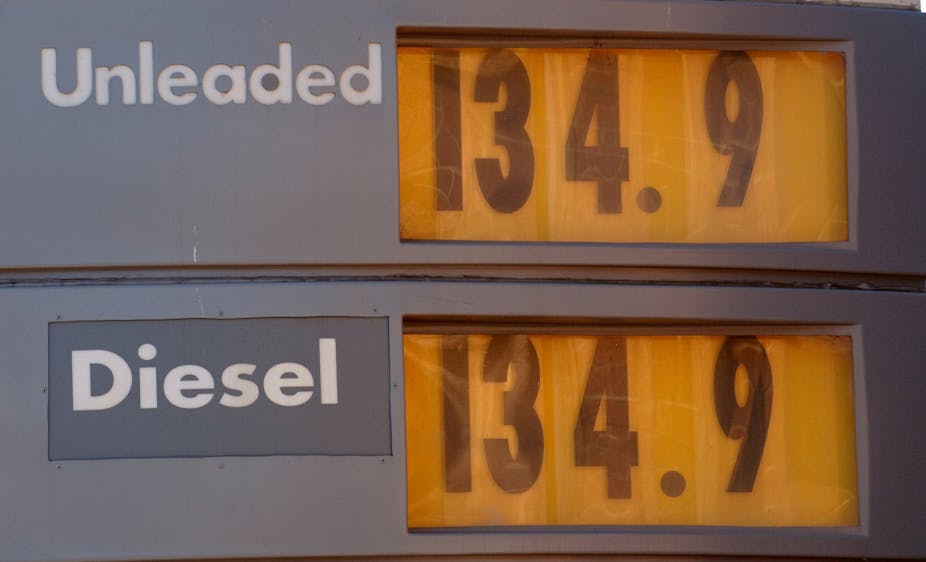In the lead-up to the introduction of the carbon tax on July 1, there has been considerable focus on the potential for price gouging – inflating prices beyond the cost increases reasonably attributable to the tax. In recent days, this has been fuelled by a letter sent to small business from the opposition, urging them to place flyers in their shops apologising for any carbon-tax related price increases.
What business can and cannot claim following the introduction of the carbon tax
Businesses are generally free to increase or lower their prices as they choose. In the context of the carbon tax, there are no specific laws preventing price gouging. However, the law does prohibit false or misleading claims regarding the cause of any price hike. For example, if a business reasonably estimates that its costs have increased by 5% as a result of the carbon tax then:
• it can increase prices by 5% and advise customers that the increase is attributable to the carbon tax;
• it can increase prices by more than 5% provided it does not attribute the additional increase to the carbon tax;
• it can not increase prices by more than 5% and advise customers that the increase is attributable to the carbon tax.
Consequently, a business wishing to increase prices after July 1 may do so in two ways. First, they may claim that they have raised prices (or will raise prices) because of the tax. Second, they may simply raise their prices following the introduction of the tax. If they adopt the first method, and their claims are false, they run the risk of detection and enforcement action. If they adopt the second method, the ACCC will have no action against them.
The ACCC’s powers
The ACCC’s role is not to stop price increases which occur following introduction of the carbon tax; rather, it is to ensure that businesses do not make misleading claims when they attribute any price increases to the carbon tax. The prohibition relied upon by the ACCC is s 18 of the Australian Consumer Law, which prohibits misleading and deceptive conduct.
Where such conduct occurs, the ACCC has the power to issue warning notices, infringement notices (imposing penalties of up to $66,000 for listed companies) and substantiation notices (requiring business to substantiate any carbon price increase claims). It can also ask the Federal Court to impose penalties of up to $1.1 million per contravention and adverse publicity orders. However, to obtain this penalty the ACCC must bring legal action before a Court; the Court must be satisfied that the corporation engaged in false or misleading conduct in contravention of the Act; and the Court must be satisfied that a penalty of $1.1 million is appropriate ($1.1 million is the highest penalty available and not likely to be imposed frequently).
It is more likely that the ACCC will make use of its power to issue warning, substantiation and infringement notices, which are faster and can effectively “name and shame” offenders.
To assist in identification of false carbon claims, the ACCC has recently established a hotline for customers to report any concerns.
Price gouging in the lead-up to the tax
Despite the carbon tax not yet being in force, the ACCC has received hundreds of complaints which have led to approximately 20 initial investigations, with several cases currently being looked at more seriously. Some of the complaints have included allegations that the carbon price was responsible for the increased price of: a slab of beer; the cost of constructing a swimming pool and other building work; petrol; taxi trips (reports of “carbon levies”); wedding costs (charging a $5 per head “carbon tax fee” for a post July 1 wedding).
Some businesses have also encouraged customers to “buy now” or lock into long term contracts to avoid the carbon price. Solar panel companies have also been scrutinised for exaggerating likely energy price increases to attract custom.
Will the ACCC be effective?
The experience of the ACCC following the introduction of the GST is instructive. Although the ACCC’s powers in relation to price gouging were more extensive for the GST, the ACCC concluded that there had been no evidence of “significant opportunistic pricing by business” to increase margins. More importantly, they concluded that most infringements that were identified involved some form of misleading conduct.
In addition, in relation to most goods and services, the market will provide a competitive discipline on any attempt to price-gouge over and above the real cost of the tax. Businesses that operate without competitive discipline may already increase their prices. Although the carbon tax might provide them with increased incentive to do so in the short term, it is not something that should be regulated for the long term; this should be left to market forces.
It is, however, appropriate to investigate false and misleading conduct surrounding the introduction of the carbon tax, and enhanced investigation and enforcement powers under the Australian Consumer Law mean that the ACCC is well placed to pursue offenders.

